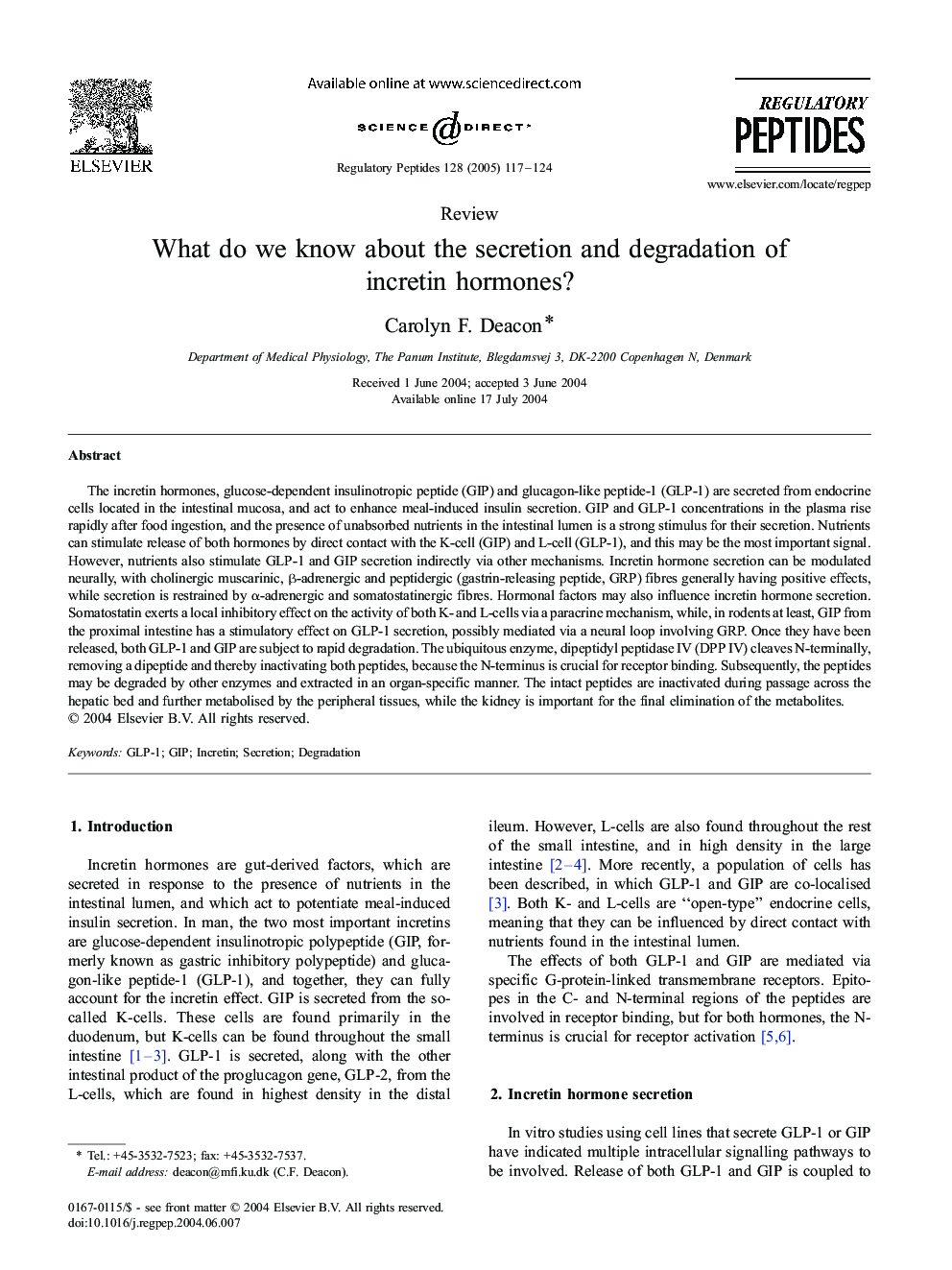| کد مقاله | کد نشریه | سال انتشار | مقاله انگلیسی | نسخه تمام متن |
|---|---|---|---|---|
| 10845316 | 1069483 | 2005 | 8 صفحه PDF | دانلود رایگان |
عنوان انگلیسی مقاله ISI
What do we know about the secretion and degradation of incretin hormones?
دانلود مقاله + سفارش ترجمه
دانلود مقاله ISI انگلیسی
رایگان برای ایرانیان
موضوعات مرتبط
علوم زیستی و بیوفناوری
بیوشیمی، ژنتیک و زیست شناسی مولکولی
زیست شیمی
پیش نمایش صفحه اول مقاله

چکیده انگلیسی
The incretin hormones, glucose-dependent insulinotropic peptide (GIP) and glucagon-like peptide-1 (GLP-1) are secreted from endocrine cells located in the intestinal mucosa, and act to enhance meal-induced insulin secretion. GIP and GLP-1 concentrations in the plasma rise rapidly after food ingestion, and the presence of unabsorbed nutrients in the intestinal lumen is a strong stimulus for their secretion. Nutrients can stimulate release of both hormones by direct contact with the K-cell (GIP) and L-cell (GLP-1), and this may be the most important signal. However, nutrients also stimulate GLP-1 and GIP secretion indirectly via other mechanisms. Incretin hormone secretion can be modulated neurally, with cholinergic muscarinic, β-adrenergic and peptidergic (gastrin-releasing peptide, GRP) fibres generally having positive effects, while secretion is restrained by α-adrenergic and somatostatinergic fibres. Hormonal factors may also influence incretin hormone secretion. Somatostatin exerts a local inhibitory effect on the activity of both K- and L-cells via a paracrine mechanism, while, in rodents at least, GIP from the proximal intestine has a stimulatory effect on GLP-1 secretion, possibly mediated via a neural loop involving GRP. Once they have been released, both GLP-1 and GIP are subject to rapid degradation. The ubiquitous enzyme, dipeptidyl peptidase IV (DPP IV) cleaves N-terminally, removing a dipeptide and thereby inactivating both peptides, because the N-terminus is crucial for receptor binding. Subsequently, the peptides may be degraded by other enzymes and extracted in an organ-specific manner. The intact peptides are inactivated during passage across the hepatic bed and further metabolised by the peripheral tissues, while the kidney is important for the final elimination of the metabolites.
ناشر
Database: Elsevier - ScienceDirect (ساینس دایرکت)
Journal: Regulatory Peptides - Volume 128, Issue 2, 15 June 2005, Pages 117-124
Journal: Regulatory Peptides - Volume 128, Issue 2, 15 June 2005, Pages 117-124
نویسندگان
Carolyn F. Deacon,